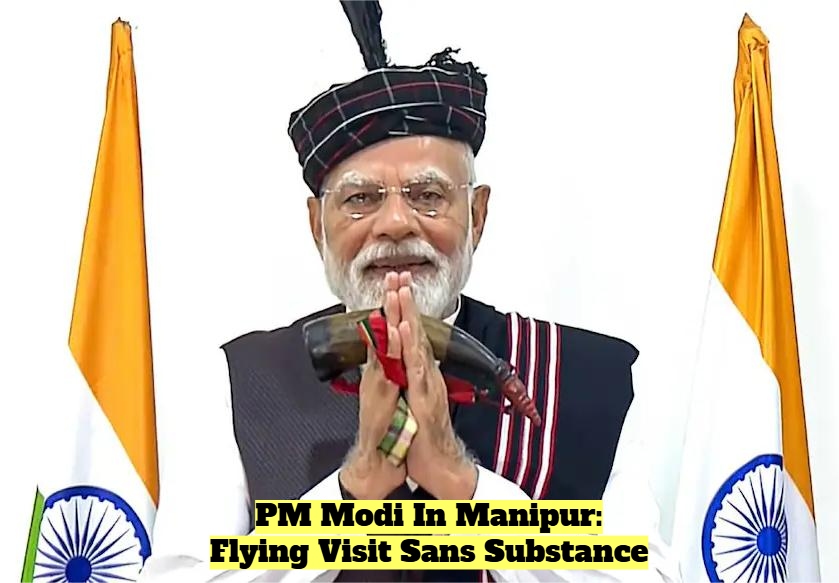

By Our Editorial Team
First publised on 2025-09-14 06:15:06
Prime Minister Narendra Modi's visit to Manipur yesterday, his first since the onset of ethnic violence in May 2023, has fallen short of expectations. While the government's announcement of development projects worth over Rs 8,000 crore is a positive step towards rebuilding the state, the visit remained more symbolic than substantive. Two years since the ethnic strife began and seven months since President's Rule was imposed is more than enough time for the government to devise a concrete plan to restore peace. Yet, surprisingly, the Prime Minister chose not to disclose any such plan, fuelling suspicions that the Centre is still trying to pursue talks with selected groups rather than seek a broader, and hopefully more lasting, solution.
The violence between the Meitei and Kuki-Zo communities has resulted in over 260 deaths and displaced more than 60,000 people. Given the scale of the crisis, the delay in the Prime Minister's visit raises questions about the government's seriousness in addressing the issue. Even when he finally arrived, he failed to outline any concrete steps to rebuild trust and foster reconciliation.
During his visit, Modi emphasized the importance of peace and development and urged both communities to work together. However, his appeals lacked details about how the government intends to tackle the underlying causes of the conflict. Announcing housing projects for displaced families is a welcome gesture, but it does not address the deeper issues of ethnic mistrust and political disenfranchisement.
Moreover, the political landscape in Manipur remains unstable. The resignation of the Chief Minister and the imposition of President's Rule have created a vacuum, making it difficult to implement long-term solutions. The Kuki-Zo community has raised concerns about persecution and displacement, underscoring the urgent need for a fair and inclusive political settlement. Holding elections without resolving these core issues will only exacerbate tensions.
Therefore, while the Prime Minister's visit may be a step in the right direction, it is merely the beginning of a long and arduous journey towards peace and reconciliation. The government must move beyond symbolic gestures and take decisive, inclusive action to address the root causes of the conflict. Only by confronting these challenges with sincerity and resolve can Manipur hope to heal and move forward.











